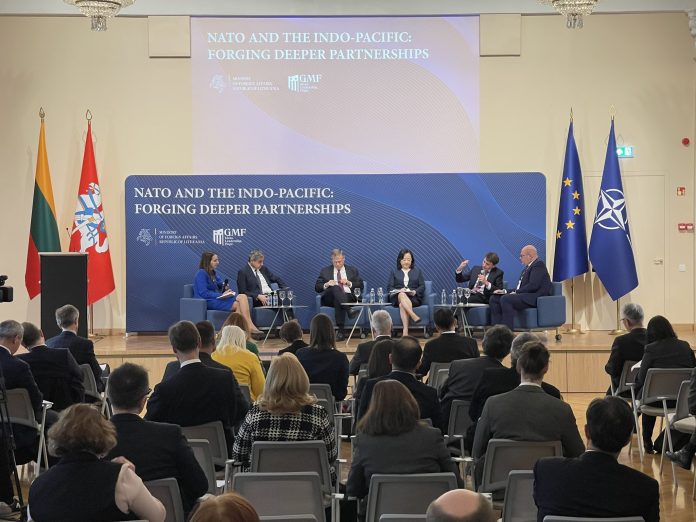On 20-21 April, the conference “NATO and the Indo-Pacific: Forging Deeper Partnerships” was held in Vilnius. For the first time, the event brought together representatives of NATO member states and partners from the Indo-Pacific for a joint discussion on multiple security challenges and guidelines for closer cooperation.
“The new security situation, the ever-increasing cooperation of autocratic states aimed at rewriting the rules of the international order requires our united response. The Indo-Pacific countries, together with Japan, the Republic of Korea, Australia and New Zealand, are natural NATO partners with whom we share our common values and economic and security interests. In times of new challenges, this partnership must be strengthened because the security of our regions is indivisible,” Lithuania’s Foreign Minister Gabrielius Landsbergis said in his opening speech.
The head of Lithuania’s diplomacy also stressed that economic relations were inseparable from geopolitical interests.
“Economic and diplomatic cooperation with autocracies deepens Europe’s dependence on them. Recent history shows that these addictions can be used against us in time. Do we want to be dangerously dependent on China for the resources we use to build our sustainable future?” Landsbergis said.
The event brought together representatives of NATO member states, Japan, South Korea, Australia, and New Zealand, and experts from think tanks and non-governmental organisations. Lithuania’s Foreign Vice-Minister Egidijus Meilūnas, NATO’s Deputy Secretary General Dan Mircea Geoană, South Korea’s Deputy Minister for Multilateral and Global Affairs in the Ministry of Foreign Affairs Park Yong-min, the U.S. China Coordinator and Deputy Assistant Secretary of State for China and Taiwan Rick Waters, EU Special Envoy for the Indo-Pacific Richard Tibbels, and Tetsu Ozaki, Ambassador of Japan to Lithuania, spoke at the conference’s public session.
In closed sessions, participants discussed opportunities for strengthening partnerships. They identified priority areas such as maintaining and strengthening the international rules-based order, resilience to economic coercion, cybersecurity, hybrid threats, climate change consequences, and maritime security. During the discussions, concrete ways to strengthen cooperation in these areas were proposed, and further steps were agreed upon in the run-up to the NATO summit in Vilnius on 11 and 12 July.
The Ministry of Foreign Affairs organised the event with the German Marshall Fund of the United States.

